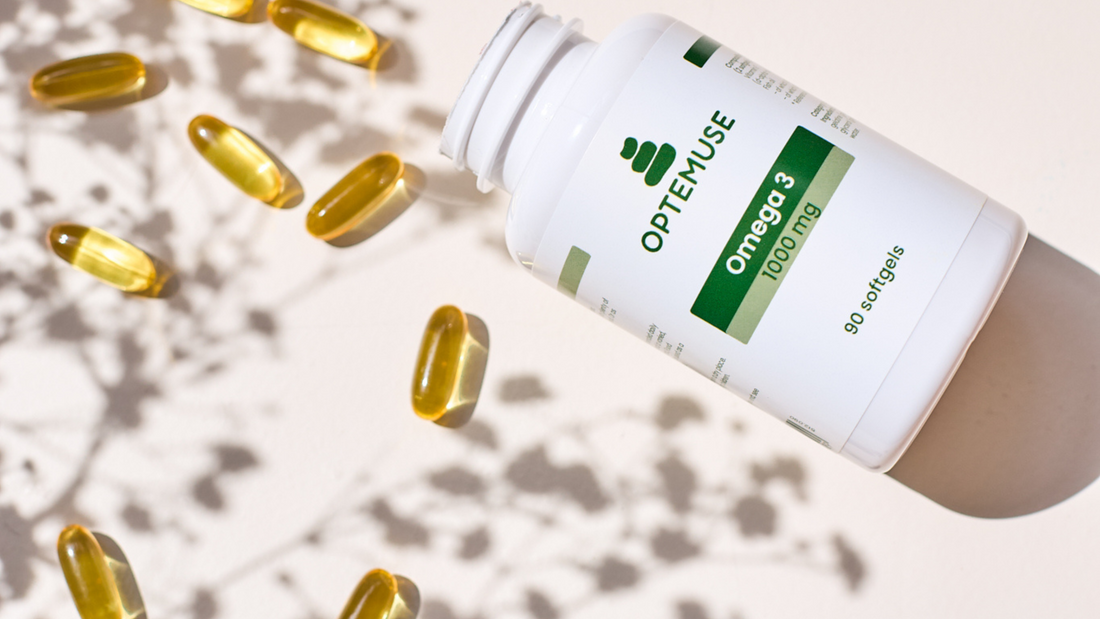
Omega 3 deficiency: symptoms and how to prevent it
Share
Omega-3 fatty acids are essential polyunsaturated fatty acids: your body cannot produce them on its own, making you dependent on food or supplementation. EPA (eicosapentaenoic acid) and DHA (docosahexaenoic acid), in particular, play a significant role in the health of your heart, brain, eyes, and skin.
Because most Dutch people eat fish – the main source of EPA and DHA – barely twice a week, we quickly become deficient.
Symptoms of an omega 3 deficiency
An omega-3 deficiency can manifest itself in various ways. The most common symptoms are:
-
Heart and blood vessels
EPA and DHA support healthy blood pressure, good circulation, and help reduce the risk of blood clots. A deficiency can lead to an increased risk of cardiovascular problems. -
Concentration and learning problems
EPA influences the functioning of serotonin receptors. A deficiency can cause poor focus, memory problems, or depression. -
Dry eyes and skin
DHA is highly concentrated in the retina and plays a role in the moisture balance of your eyes. A deficiency can lead to dry eyes or skin problems such as flaking or eczema. -
Reduced resistance
Omega-3 affects the immune system. Low intake weakens your immune system, making you more susceptible to infections and inflammation.
How do you prevent an omega-3 deficiency?
Fish, flaxseed, chia seeds, and walnuts contain omega-3 fatty acids, but the conversion of plant-based ALA to EPA and DHA is very limited in the body. Therefore, it's important to get enough EPA and DHA directly from food (oily fish) or supplements.
Omega 3 from Optemuse
Because eating fish is not feasible for many people, we at Optemuse have developed a high-quality Omega 3 supplement .
Our Omega 3 contains pure fish oil with EPA and DHA in an optimal ratio, to support:
- a healthy heart and blood vessels
- concentration, memory and mood
- healthy skin and eyes
- a strong immune system
This way you can help prevent deficiencies without having to eat fish several times a week.
Finally
An omega-3 deficiency can cause subtle but bothersome symptoms, from dry skin and poor focus to lowered immunity. Because our bodies can't produce these fatty acids on their own, it's essential to consume them daily. With the right diet—and, if necessary, a supplement like Optemuse Omega-3 —you can keep your heart, brain, and skin healthy.
